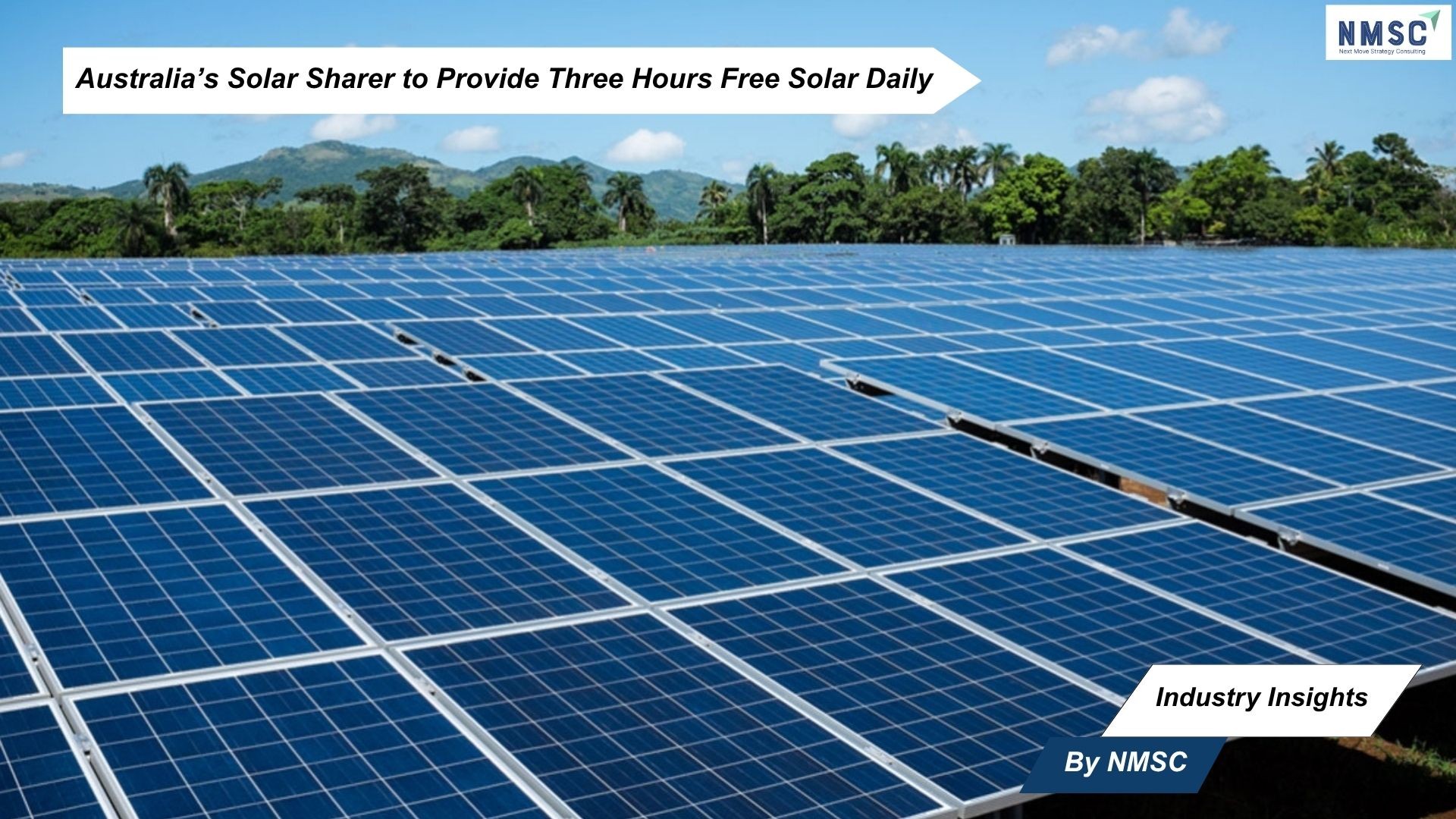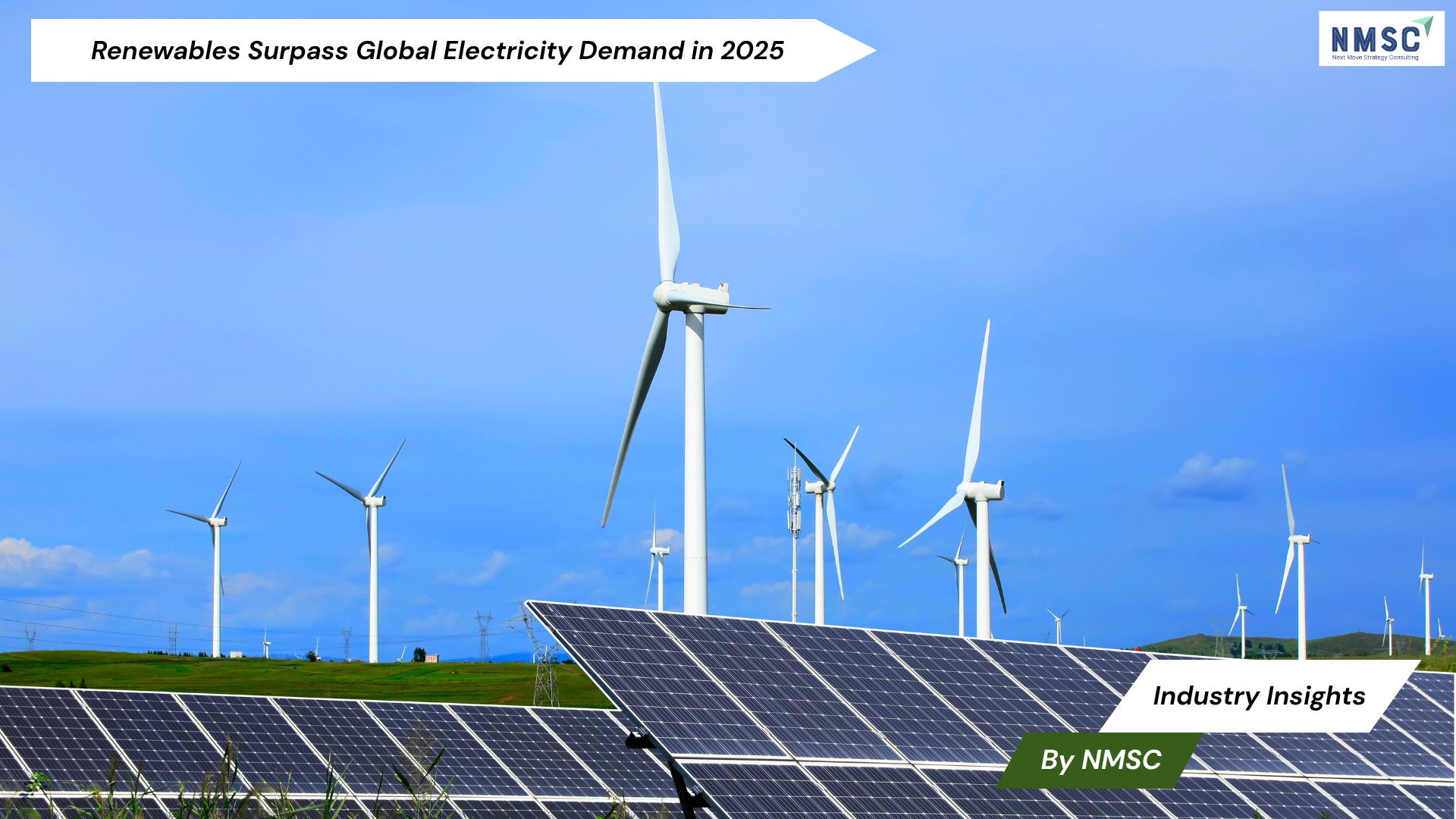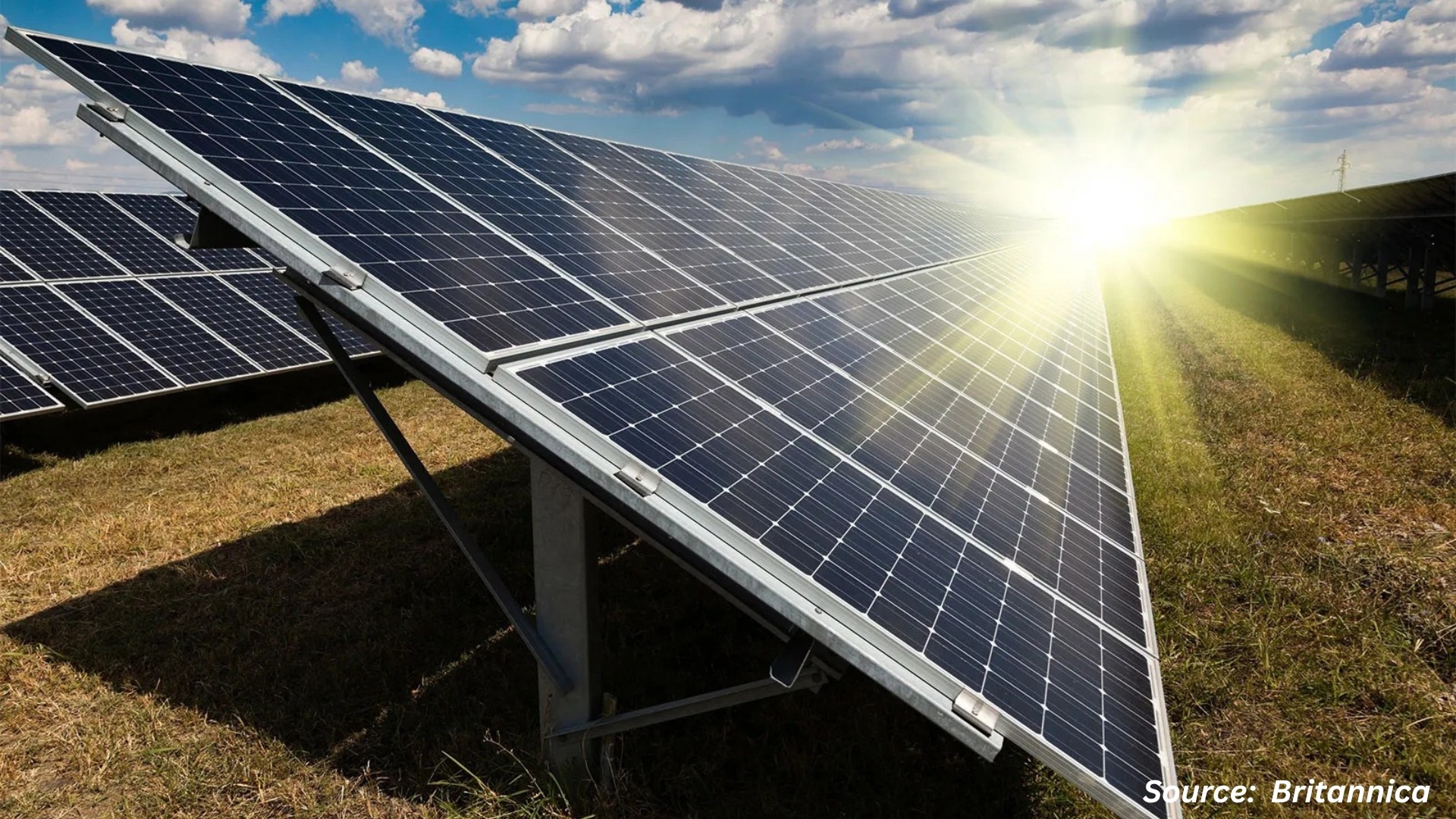Australia’s Solar Sharer to Provide Three Hours Free Solar Daily
Published: 2025-11-04

Industry Insights from Next Move Strategy Consulting
Australia will offer at least three hours of free solar power each day to households, including those without rooftop panels, under a new energy-saving initiative expected to begin in 2026, Energy Minister Chris Bowen said.
A phased rollout will start in New South Wales, South Australia and southeast Queensland before the scheme is expanded more widely. Users will receive the free solar power during the middle of the day when generation is strongest.
Aiming to shift consumption into hours of abundant daytime generation, Bowen said people who move electricity use into the zero-cost period will benefit directly whether they own or rent, and that wider uptake will create system benefits that lower costs for all electricity users.
Market reaction to the announcement was immediate: shares of two of Australia’s largest electricity suppliers, AGL and Origin Energy, fell about 3% by late afternoon.
About four million Australian households already have rooftop solar. On sunny afternoons generation can be so strong that electricity prices swing negative, while peak demand typically occurs several hours later, a mismatch the programme seeks to address by encouraging load shifting into midday.
Eligibility and Practical Requirements
Customers must have a smart meter to take part and will only gain the subsidy if they shift peak usage into the middle of the day by running appliances or charging vehicles during the zero-cost window. Apartment dwellers and renters are explicitly included in the offer.
Key Features at a Glance
-
Minimum three hours of free midday solar offered daily.
-
Available to households with or without rooftop solar, including renters and apartment residents.
-
Initial rollout in New South Wales, South Australia and southeast Queensland, then expanded.
-
Participation requires a smart meter and active shifting of usage into the zero-cost period.
Program Purpose and Operational Outlook
By incentivising demand to move into hours of peak solar generation, the Solar Sharer programme is intended to reduce system stress caused by the daily mismatch between midday generation and later evening peaks, and to lower costs through broader system benefits as uptake grows.
Next Move Strategy Consulting’s Analysis
Based solely on the details reported, Next Move Strategy Consulting sees this measure as a targeted operational tool: by creating a priced (zero-cost) midday window and enabling wide access, including for renters and those without panels, the policy should encourage load shifting, reduce negative-price occurrences during sunny afternoons and help ease pressure on the grid during evening peak demand. Wider adoption will be key to realising the cost-lowering system benefits the minister described.
Source: Reuters
Prepared by: Next Move Strategy Consulting
About the Author
 Joydeep Dey is a passionate digital explorer driven by creativity, strategy, and learning. He has worked in SEO, content creation, and video editing, combining analytical and creative skills to bring ideas to life. He has explored how AI tools and emerging tech transformed digital storytelling and productivity. Guided by curiosity he believes success lies not just in results but in learning something new every day. He continues to evolve with every project, striving to inspire through innovation and impact. His journey reflects a mindset of progress and purpose.
Joydeep Dey is a passionate digital explorer driven by creativity, strategy, and learning. He has worked in SEO, content creation, and video editing, combining analytical and creative skills to bring ideas to life. He has explored how AI tools and emerging tech transformed digital storytelling and productivity. Guided by curiosity he believes success lies not just in results but in learning something new every day. He continues to evolve with every project, striving to inspire through innovation and impact. His journey reflects a mindset of progress and purpose.
About the Reviewer
 Sanyukta Deb is an accomplished Content Writer and Digital Marketing Strategist with extensive expertise in content strategy, SEO, and audience engagement. She specializes in building strong brand visibility through data-driven campaigns and impactful, value-added researched content. With a passion for creativity and innovation, she blends strategic thinking with design and communication to craft meaningful digital experiences. Over the years, she has contributed cross-functional marketing projects, driving measurable impact and audience engagement.
Sanyukta Deb is an accomplished Content Writer and Digital Marketing Strategist with extensive expertise in content strategy, SEO, and audience engagement. She specializes in building strong brand visibility through data-driven campaigns and impactful, value-added researched content. With a passion for creativity and innovation, she blends strategic thinking with design and communication to craft meaningful digital experiences. Over the years, she has contributed cross-functional marketing projects, driving measurable impact and audience engagement.
















Add Comment